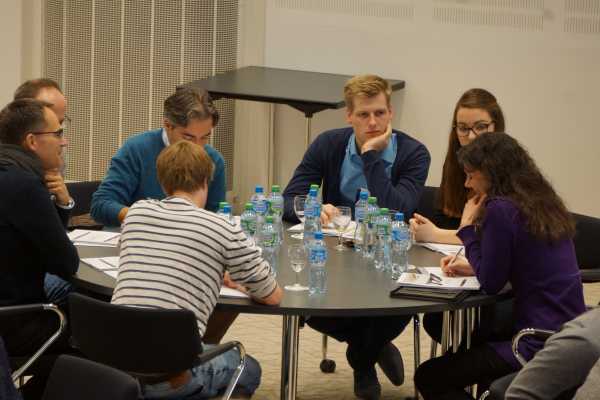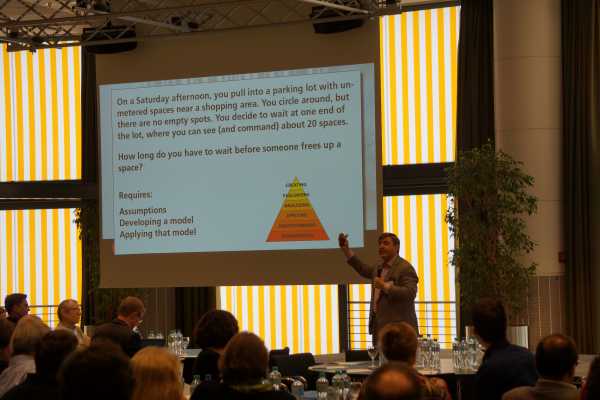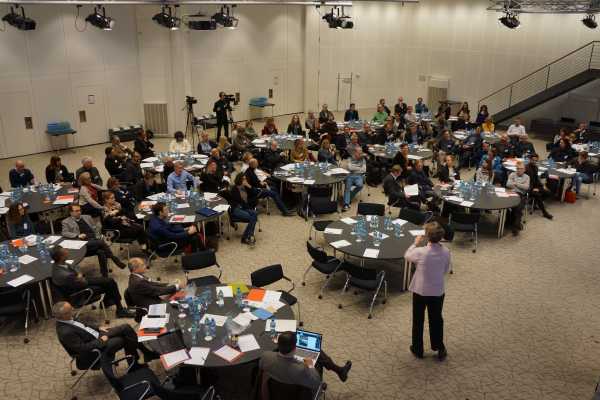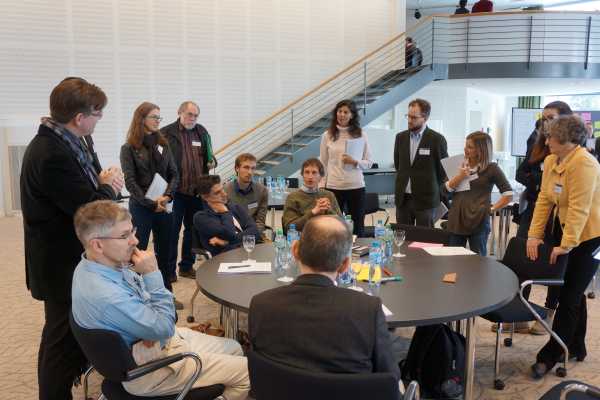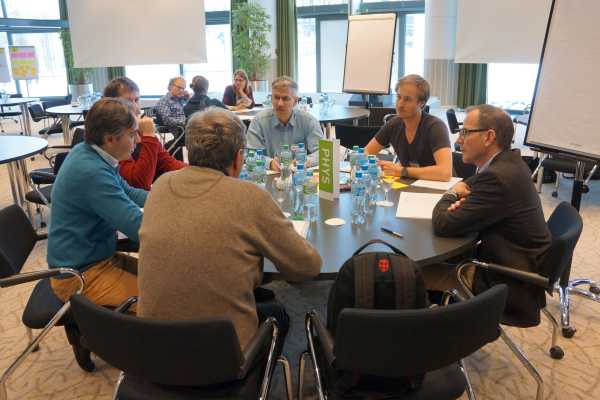Assessing assessments
How someone learns depends largely on how they are assessed. To help ETH retain its leading position in the education of young talent, about 100 educational decision makers from ETH Zurich attended a two-day retreat on the topic of assessment.
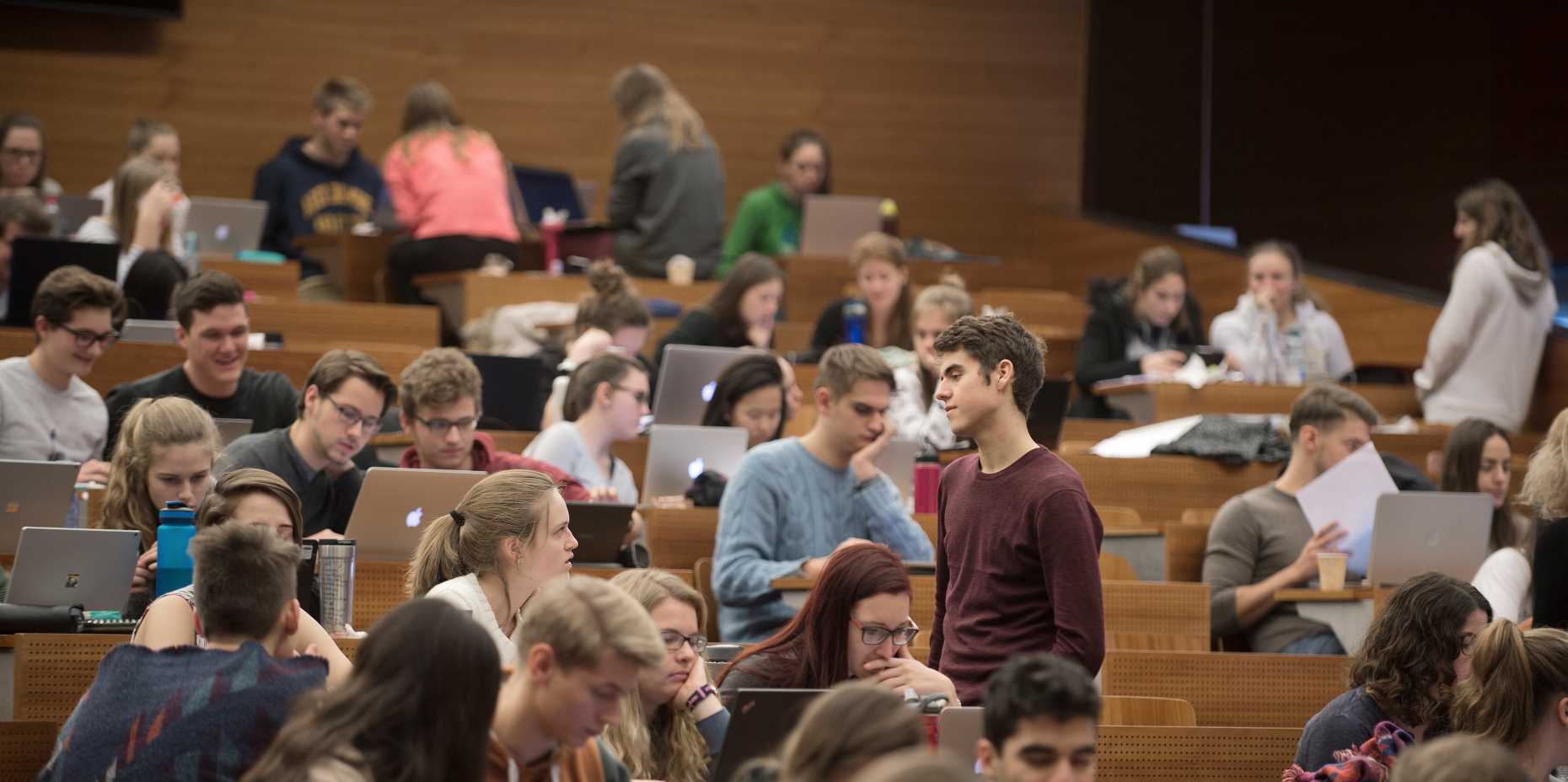
“From proof of learning to educational qualifications” was the title of the second teaching retreat, held at the Bocken estate in Horgen, in mid-January. About 100 people accepted the invitation from ETH Rector Sarah M. Springman and attended the two-day event. Vice-rectors, directors of study and study coordinators, educational developers, senior Rectorate staff, student representatives and non-professorial academic staff shared their opinions on the topic of “assessment in teaching”. Four speakers stimulated the discussion with their ideas and opinions on how teaching could or should develop over the next 15 years.
Challenges according to Antonio Loprieno
Antonio Loprieno, former Rector of the University of Basel and long-serving president of the Rectors’ Conference of Swiss Universities (CRUS), touched on how two types of universities have evolved over the decades. He then suggested that the post-Humboldt model common in continental Europe is losing ground to the Anglo-Saxon world-class university model of John Henry Newman. He believes research-based university rankings are one of the main drivers of this development, as they increase competition between institutions. According to Loprieno, this creates a further challenge, as it reinforces the growing trend for research to take precedence over teaching. Political developments in the western world pose a particular threat at present. At a time when our society has reached the highest level of scientific competence, it has embraced the post-truth era. This is where institutions such as ETH in particular must step in, he believes.
Pioneering approaches of Eric Mazur
Eric Mazur, Professor of Physics at Harvard University and winner of the Minerva Prize for Advancements in Higher Education 2014, also talked about rankings and classification. Many exams are still about classification rather than development of the skills required in the 21st century. In Bloom’s Taxonomy of Educational Objectives (see illustration), most exam questions were at the lowest three levels; that is, they assessed the ability to remember, understand and apply, but were of little relevance to future working life.
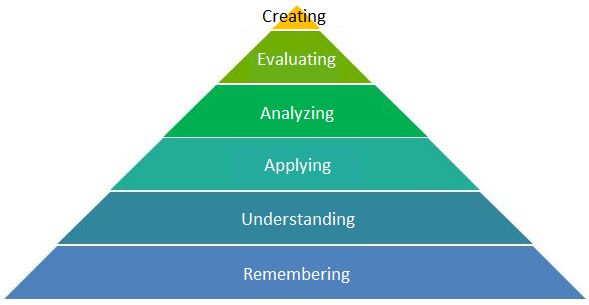
Mazur’s plea: In examinations (including group ones), real-world problems should be solved with relevant aids, such as books and computers. Instead of a ranking list, the main focus should be on student feedback, since meaningful and objective rankings cannot be created on the basis of exams. In other words, abilities, not content, should be assessed. The learning objectives – and thus the assessment tasks – should therefore be considered first in the design of a course (“backward design”). The conflicting dual role of lecturers as both coach and examiner should also be avoided; for example, evaluation of students’ work by each other.
Employer view from Gabriela Keller
ETH graduates must be well prepared for working life: Gabriela Keller, CEO of Ergon Informatik, has been counting on this for years. Almost half of all employees (130 from 270) at her company studied computer science at ETH. Keller pictures university education in the shape of a “T”: the bar of the letter represents the basic knowledge acquired during the Bachelor’s degree, while the stem symbolises the deepening of this knowledge during a Master’s degree. This knowledge is then enhanced further over the course of a career, as the “T” gradually takes the shape of an octopus with many legs.
Keller hopes ETH will continue to focus on education rather than promoting research alone with a view to improving its rankings. She praised ETH’s Critical Thinking initiative, as she believes that critical assessment of one’s own field and the ability to respond to customer requirements are essential skills in the working world. Keller thinks it is a pity that computer science internships are no longer part of the curriculum, but the fact that many students still volunteer for an internship is very positive.
Student ideas from Neil Montague de Taisne
According to VSETH representative Neil Montague de Taisne, ETH students expect a course to make them fit for the labour market. His proposals centred around an individualisation of courses. Instead of focusing on grades, which are more impersonal, he proposes giving students more verbal feedback to motivate them, the introduction of quarters rather than semesters, and helping students to assume more responsibility, such as an affinity test that helps them choose a field of study or technical aids that show them courses tailored to their needs.
Setting the course for tomorrow
After the opening presentations, it was the participants’ turn: in mixed groups, they discussed the ideas of the speakers, compared them with their own expectations and presented their findings at the plenary session. The first day finished with a workshop with Eric Mazur, in which specific assessment tasks had to be evaluated on the basis of Bloom’s Taxonomy. The second day got underway with four short talks by ETH staff on their experiences with innovative assessment methods. The participants then addressed various sub-aspects of assessment, again in small mixed groups. They developed clear ideas of the role of digitalisation and the inclusion of interdisciplinary skills, and discussed the students’ working cycle over the academic year and the use of central elements.
The two days culminated in dozens of flipcharts covered in sticky notes and sketches. However, the impact of the retreat will only become clear during the coming months and years, when the impressions and ideas have really sunk in among the participants and when measures in the departments and the Rectorate lead to improved teaching and learning processes.
Talks and initial results
Anyone who was unable to attend the retreat and would like to find out more about the content can access the talks and the results presentation from the first workshop here.

